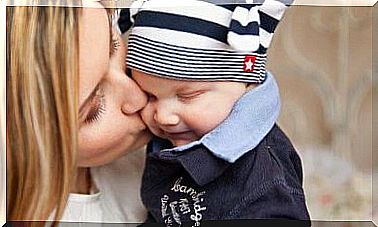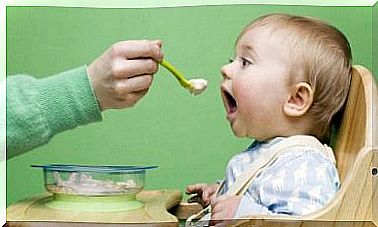Know The Differences Between ADD And ADHD

Is your child a little distracted? Forget almost everything and is disorganized? You may have Attention Deficit Disorder (ADD). Can things get complicated when you interrupt everyone and keep moving? Perhaps then you may have Attention Deficit Hyperactivity Disorder (ADHD).
You may wonder what this is all about. Well, ADHD is a developmental problem characterized by exaggerated levels of inattention, over-activity, and impulsivity. If your little one is, rather, calm and spends “on the moon” he may have ADD.
According to the studies carried out, the symptoms appear in early childhood and do not respond to neurological, sensory or language alterations and have nothing to do with mental retardation
Can be detected in time

It is good to be clear about the difference between Attention Deficit Disorder and Attention Deficit Hyperactivity Disorder. ADD is characterized by the fact that the individual cannot concentrate and, therefore, does not pay attention. It is the character that most of the cases is “in the clouds.”
The good news is that it can be detected early, when our children are still in the process of training. We have to know that: they are not active, they do not finish the task and they are always distracted.
A child with ADD is unlikely to do his jobs successfully unless you help him. Don’t scold him because he’s “lazy.” You can hurt his feelings, demotivate him, and he’ll probably get depressed.
It is estimated that 30% of the population suffer from ADD: their cognitive capacity is slow and, therefore, at work they forget oral or written instructions and make mistakes.
Detect ADHD
On the other hand, the child with the hyperactive-impulsive condition (ADHD) cannot remain seated in the classroom. It is the little one who is seen as disobedient and undisciplined, “has bad behavior.” A hyperactive little boy is active all the time and has trouble sleeping.
It is verbose and asks everything. They have few friends because, as they are impulsive, they have problems in relationships with their peers (quite the opposite happens to the child with ADD who, due to his passive temperament, reaps friendships). If they are not treated in childhood, they will be aggressive and excessively impulsive adolescents.
Both children with ADD and those with ADHD find it difficult to follow routines, heed orders from their superiors, and are extremely clueless
If we compare the behaviors of children with attention deficit with hyperactive-impulsive ones, we will see that both find it difficult to maintain their attention and follow our orders. We will recognize the child with ADHD for his impulsiveness.
Alternatives for treatment

An agreement has not yet been reached on the most suitable treatment. Many physicians agree that stimulants do not normalize the full range of behavior problems; on the contrary, psychological treatment is widely accepted.
Currently attempts are being made to reinforce the potential aspects of young people through sport and group dynamics to improve self-esteem and social skills.
Characteristics of children with ADD
Some characteristics of children with ADD can be:
- They are scattered and very easily distracted.
- It is difficult for them to understand things clearly and quickly. They never seem to understand the orders one hundred percent.
- Any task is a titanic effort that cannot always be completed.
Characteristics of children with ADHD
Some characteristics of children with ADHD can be:
- They cannot be still nor can they concentrate.
- They have a hard time keeping their body relaxed. They are always moving their feet or biting each other.
- Unless motivated, they are unable to finish something that takes effort.
- They cannot wait their turn and easily interrupt others.
If your child meets these characteristics, do not be alarmed. It is advisable not to stay with a single opinion because there are cases in which there is no such ADD or ADHD. So that’s when your child is likely to be a highly gifted complex.
Gifted?
The research is very recent and there are still no conclusive results that have been published: many children, far from having attention disorder or hyperactivity disorder, are little Einsteins.
According to psychologist and cognitive scientist Steven Pinker, in the cases of Einstein and other gifted people (they have been known to speak late), “it may be that giftedness and developmental delay are intrinsically related. “
Psychologist Kazimierz Dabrowski suggests that gifted children have greater psychomotor, sensory, imaginative, intellectual and emotional excitability. And they can be very clueless.
You are probably a very lucky mother. Love your little one above all things and sit down proud of him regardless of the obstacles they might go through.









